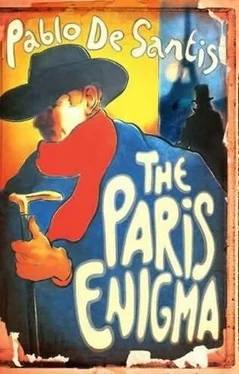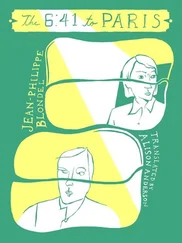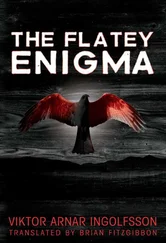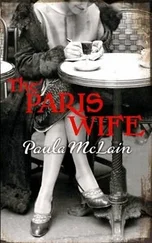I drank to the bottom of the glass. Since I wasn’t a born drinker, I liked the sickly sweet taste, the scent of cinnamon, and the other overlapping f lavors that I couldn’t name. When the rock crystal cup was empty, Grialet refilled it.
“For years we initiates fought among ourselves. Gnostics, Rosicrucians, alchemical nostalgists, Valentinians, faithful of the Martinist church, Christians, anti-Christians. But now we are united. Now we all have a common enemy. Positivism, the desire to understand everything, to explain everything, is the modern disease. The tower, from which one can see the whole city, and the World’s Fair, which wants to display everything that exists, are nothing less than the symbols of a world without secrets. And your detectives encourage the builders, they encourage the scientists; they don’t know they too are alive because secrecy exists, and when it disappears, they will too.”
Isel brought his birdlike profile close to mine. “Grialet speaks the truth. The detectives have become, unwittingly, the most f lagrant sign of the philosophy that everything can be explained. They cannot be saved. None of them, except Arzaky.”
“Why Arzaky?”
“Because he’s Polish,” said Isel. “Because he hasn’t renounced his faith in Christ, even though he hides it. Because he believes in the dark forces and in the limits of Reason. But that battle takes place in his heart and it will eventually destroy him. He thinks he’s a rationalist, a materialist, but he is a soldier of Christ.”
The wine had begun to make me woozy. For a few seconds I feared it was a bewitched potion. I tried to put some order to the words that f loated around in my mouth; I slowly translated them into French.
“Darbon was investigating all of you. Darbon knew that you wanted to use the tower to disseminate your beliefs.”
“Disseminate?” Grialet laughed. “Do you think we’re journalists?” He said the word with unbounded disdain. “We’ve done everything possible to hide our beliefs. Christ preached to us, but his true message was a secret one: we are the target of that message, and we transmit it according to our rules. It doesn’t matter if they illuminate the world with electric light: the more light there is the more shadows it creates. We hide ourselves in the darkest corners, like the Christians in the catacombs.”
I wanted to jolt Grialet out of his superior posturing. I wanted to bring him back to the world of accusations, evidence, and alibis.
I asked him, “When was the last time you saw the Mermaid?”
Grialet stood up. I assumed that I had offended him and that he would kick me out right then and there. But he answered with the saddest voice I’ve ever heard.
“If only that were the case. If only I had stopped seeing her. I can’t stop seeing her. I go to the window and I think she’s about to show up.”
“Did you kill her?”
“Me? Why would I kill her?”
“Out of jealousy over Arzaky. Because she worked for him.”
“The Mermaid died of what all mermaids die of: the call of a world that doesn’t understand them.”
Grialet’s voice had begun to crack. He moved away from us and toward the window. Father Desmorins listened to everything with his gaze lowered, and didn’t interfere. The consumptive poet fixed his large damp eyes on me. It seemed that he was about to say something and he raised his hand, as if we were in school and he was awaiting the teacher’s approval, but then he lowered it quickly and regretfully. It must have been true that he burned his manuscripts because the tips of his fingers were blistered and scarred.
Isel dug his clawlike fingers into my arms.
“It is true that we are dark men, and that our rituals eventually leave us with a certain distaste for life, that sometimes leads us to lose our way. Among our predecessors, the suicide rate is higher than for other men. Lucky are those who die a quick death, a death that the Church condemns, wrote the Baron Dupotet. But don’t think that your detectives are men of the light. With the risks they run they also, unsuspectingly, seek out a death worthy of their legend. Or hadn’t you noticed how frequently they put their lives in peril for no good reason? And then there is the other temptation, crossing the line.”
“What line?”
“The one that separates them from the murderers,” said Isel.
Grialet called to me from the window. I freed myself from Isel’s grasp.
“You think you are looking for Arzaky? I think Arzaky’s following you. Come here.”
I looked through the glass at a man who was trying to hide in the darkness. He looked without daring to enter. His hair was a mess; he hadn’t changed his clothes or shaved in days. The man who used to be Reason incarnate was now seeking refuge in the shadows. Behind me, the wall whispered in black ink:
I am the Gloomy One-the Widower-the Unconsoled The Prince of Aquitaine, at his stricken Tower.
I felt a mixture of happiness and disappointment; while I was relieved to have found him; I had hoped that Arzaky was on his way to a revelation, a solution to all the enigmas. And the man who was there below, clumsy and disheveled, didn’t even look as if he knew where he was.
By the time I made it out onto the street, he had disappeared.
It was May 2, three days before the Grand Opening. The Numancia Hotel was a constant hubbub of travelers coming and going; many had come to the fair some time ago-secret delegates from the European crowns, technicians intent on investigating the future, inventors in search of inspiration-and thanks to their safeconducts and permits they had gone through the pavilions at their leisure, they had traveled in the coaches that went through the fair, they had exhausted themselves climbing the empty tower. But their privilege was about to come to an end: the day was approaching when the treasure would be handed over to the masses. For them it was time to leave: drawn by the constant promise of the future, for them the fair was already beginning to seem like a tired amusement park, a circus they’d already seen, a poor imitation of the modern world.
When I arrived at the Numancia, Dandavi, Caleb Lawson’s assistant warned me, “They are waiting for you.”
“For me?”
“Today’s session cannot start without you.”
“What do they need me for?”
“Since Arzaky isn’t here, you have to be. You’ll be his eyes and ears.”
“And his tongue as well?”
The Hindu looked at me with his large almond-shaped eyes and adopted a serious but ambiguous tone; it was impossible to tell if he was wise or just vague.
“When the time comes, we all learn to speak, and to be quiet.”
I entered the underground parlor. Caleb Lawson had taken Arzaky’s place. He seemed happy to be at the center of the scene, but reluctant, like an understudy who is called unexpectedly after months of waiting and realizes that he’s forgotten his lines. Now that the Mermaid was dead and the mystery was still unresolved, the instruments that filled the glass cases seemed like old, useless artifacts. It had been Arzaky’s presence that gave meaning to those objects. I looked for Craig’s cane, but I only found the label that listed its name and purpose. Wherever the Polish detective was, he had taken the weapon with him.
Caleb Lawson clapped his hands to call order. He wanted to begin, but his voice didn’t come out. He coughed, waited for Dandavi’s look, and finally spoke above the voices that continued to whisper in the corners.
“We don’t know where Viktor Arzaky is, so we’ll have to start without him. I want to remind you all that unless he has a good reason, we should consider his absence a serious breach of our rules.”
Читать дальше












